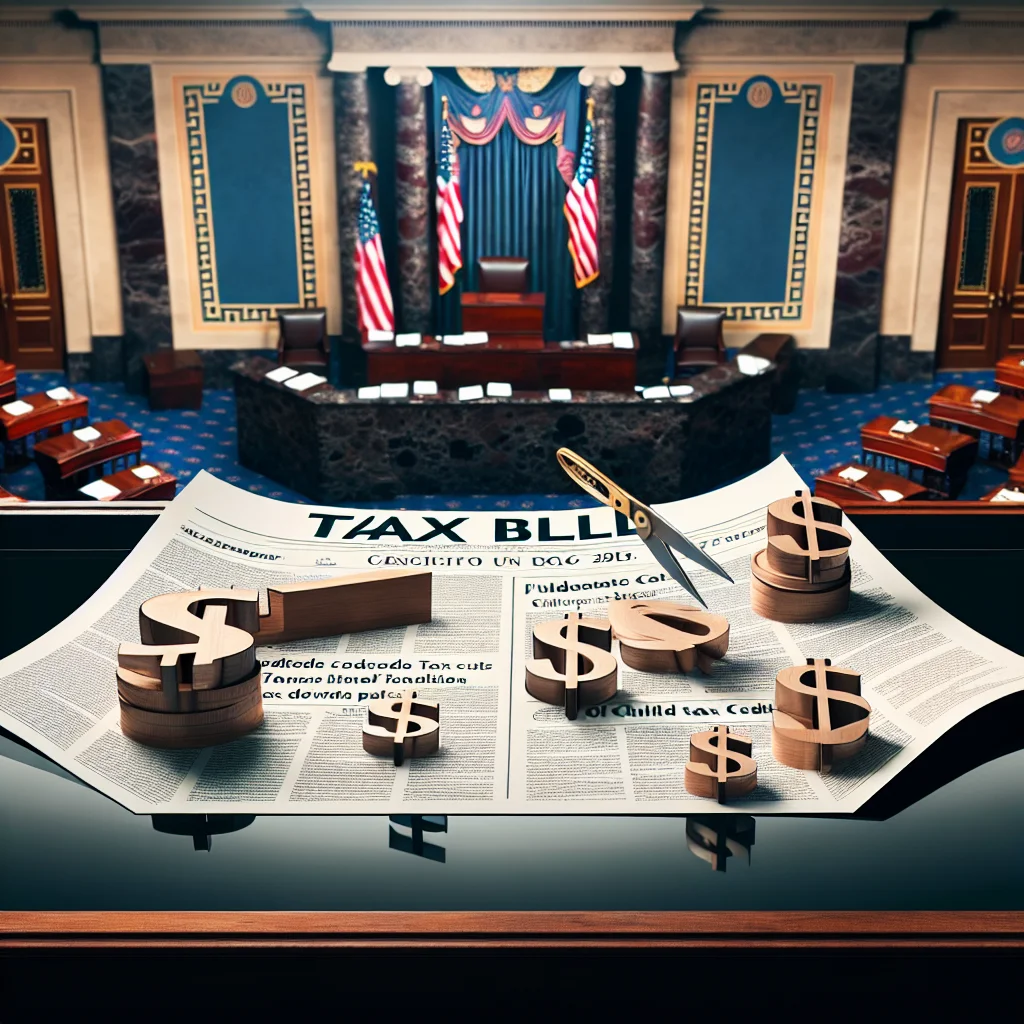
Senate Receives Trump-Backed Tax Bill Amid Republican Divisions
Washington, D.C. — The Senate began deliberations Monday on a sweeping new tax package backed by former President Donald Trump, as the Republican Party faces deep internal divisions over the bill’s key provisions. The legislation, which cleared the House last week, aims to extend and expand several tax cuts set to expire at the end of 2025.
Key Provisions and Stakes
- Extension of 2017 Tax Cuts: The bill seeks to renew tax cuts for individuals and businesses originally enacted under Trump’s 2017 Tax Cuts and Jobs Act.
- Corporate Tax Rate: The legislation proposes maintaining the corporate tax rate at 21%, resisting calls from some Democrats to raise it to address the federal deficit.
- Child Tax Credit: The bill increases the child tax credit thresholds, but stops short of making it fully refundable, a sticking point for Democrats.
With the 2024 presidential election behind him, Trump has made tax policy a central theme as he seeks to solidify his economic legacy and rally the GOP base. However, the Senate Republican caucus is split between fiscal conservatives wary of swelling deficits and populist members who want to prioritize working- and middle-class tax relief.
GOP Faces Cross-Pressures
Senate Minority Leader Mitch McConnell faces pressure from both moderate Republicans, who want to see more targeted relief for lower-income families, and conservative lawmakers insisting on spending offsets to avoid adding to the national debt. Meanwhile, several swing-state GOP senators have expressed concern about the political risks of extending tax breaks for high earners while cutting social spending elsewhere.
“There’s no consensus yet,” said a senior Senate aide. “The party is divided on how to balance fiscal responsibility with demands for economic stimulus.”
Democratic Opposition and Uncertain Path Forward
Senate Democrats have signaled strong opposition to the bill in its current form, citing concerns that it disproportionately benefits wealthy Americans and corporations. Senate Majority Leader Chuck Schumer has said that any bipartisan compromise must include a more generous child tax credit and safeguards for social programs.
With the Senate split 51-49, the bill’s fate remains uncertain. Several key Republican senators have not committed to supporting the measure without further changes, raising the prospect of extended negotiations well into the summer.
Economic and Political Implications
The outcome of the tax bill debate is being closely watched by businesses, investors, and American households. Economists warn that failing to extend the tax cuts could result in higher taxes for millions of Americans next year, while critics argue that the legislation could exacerbate long-term budget deficits.
As the Senate prepares for further debate and possible amendments, the future of Trump’s tax agenda hangs in the balance, with both policy and political stakes running high.












